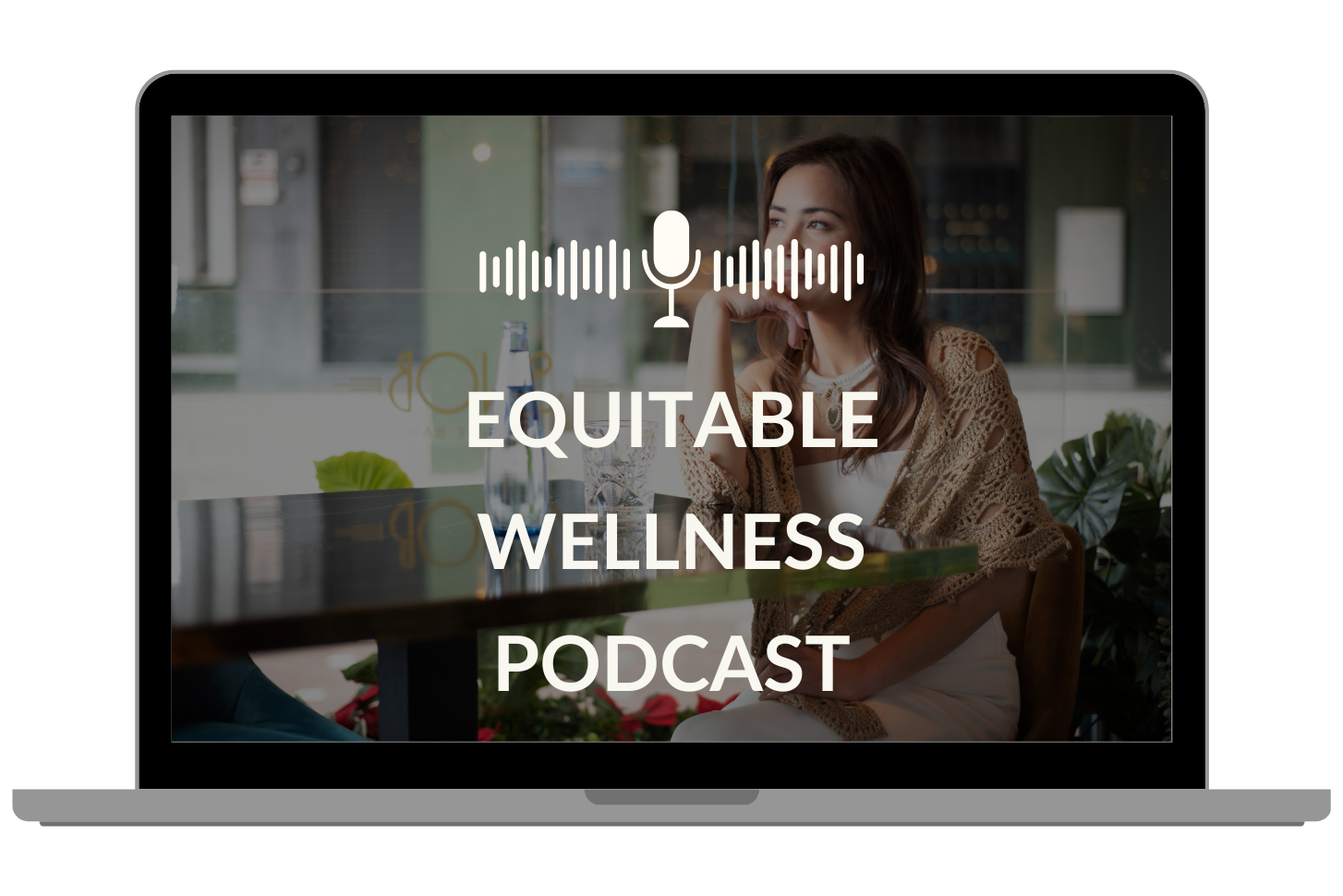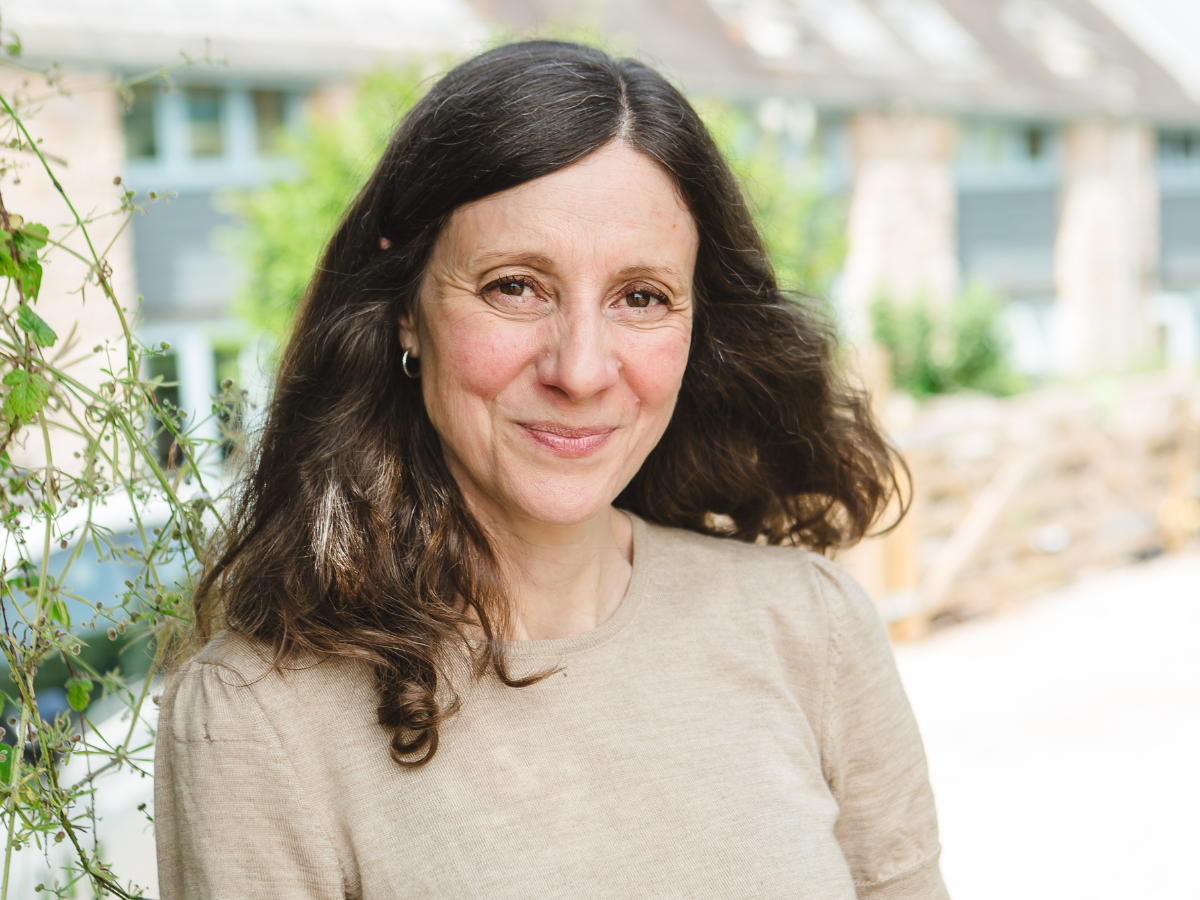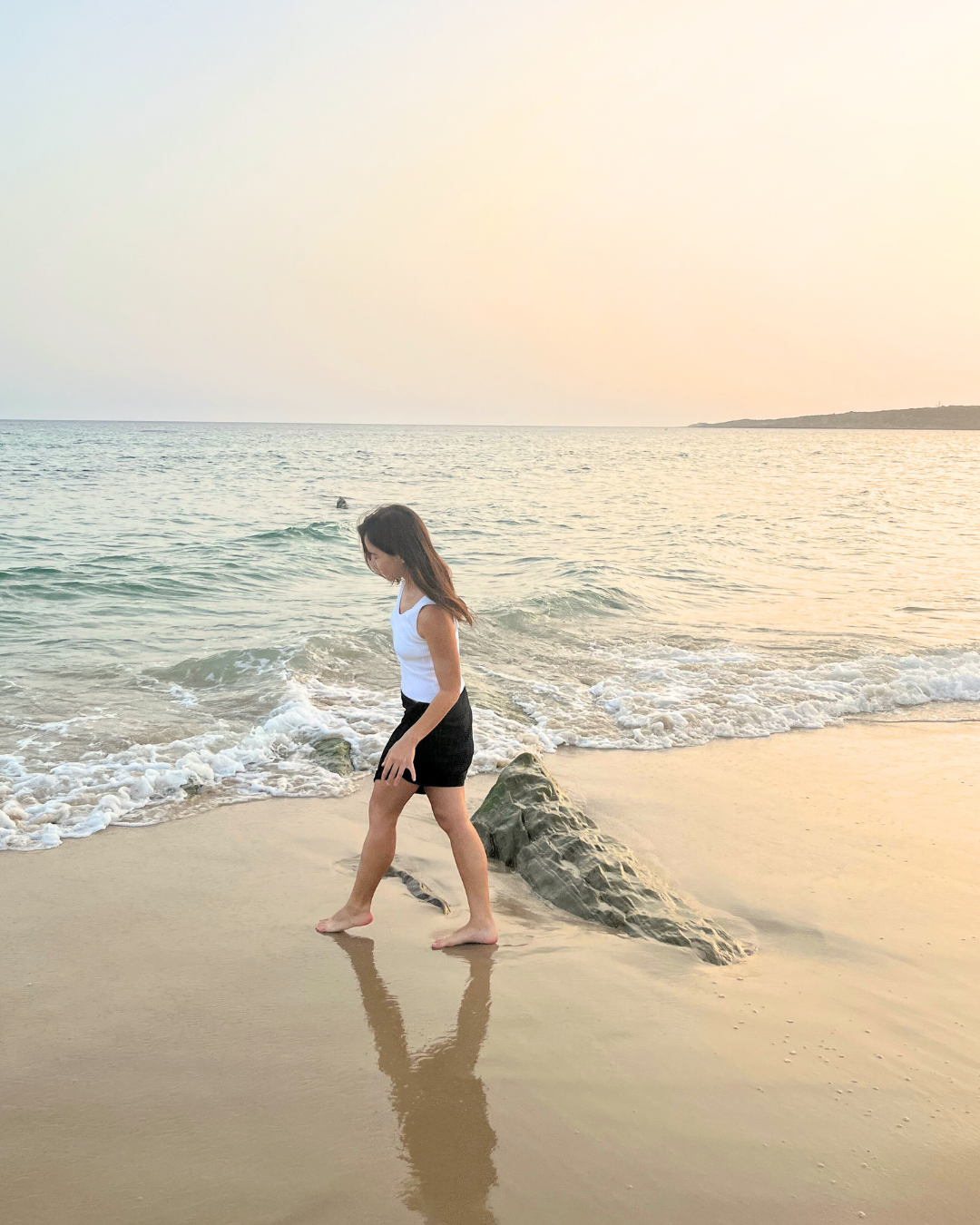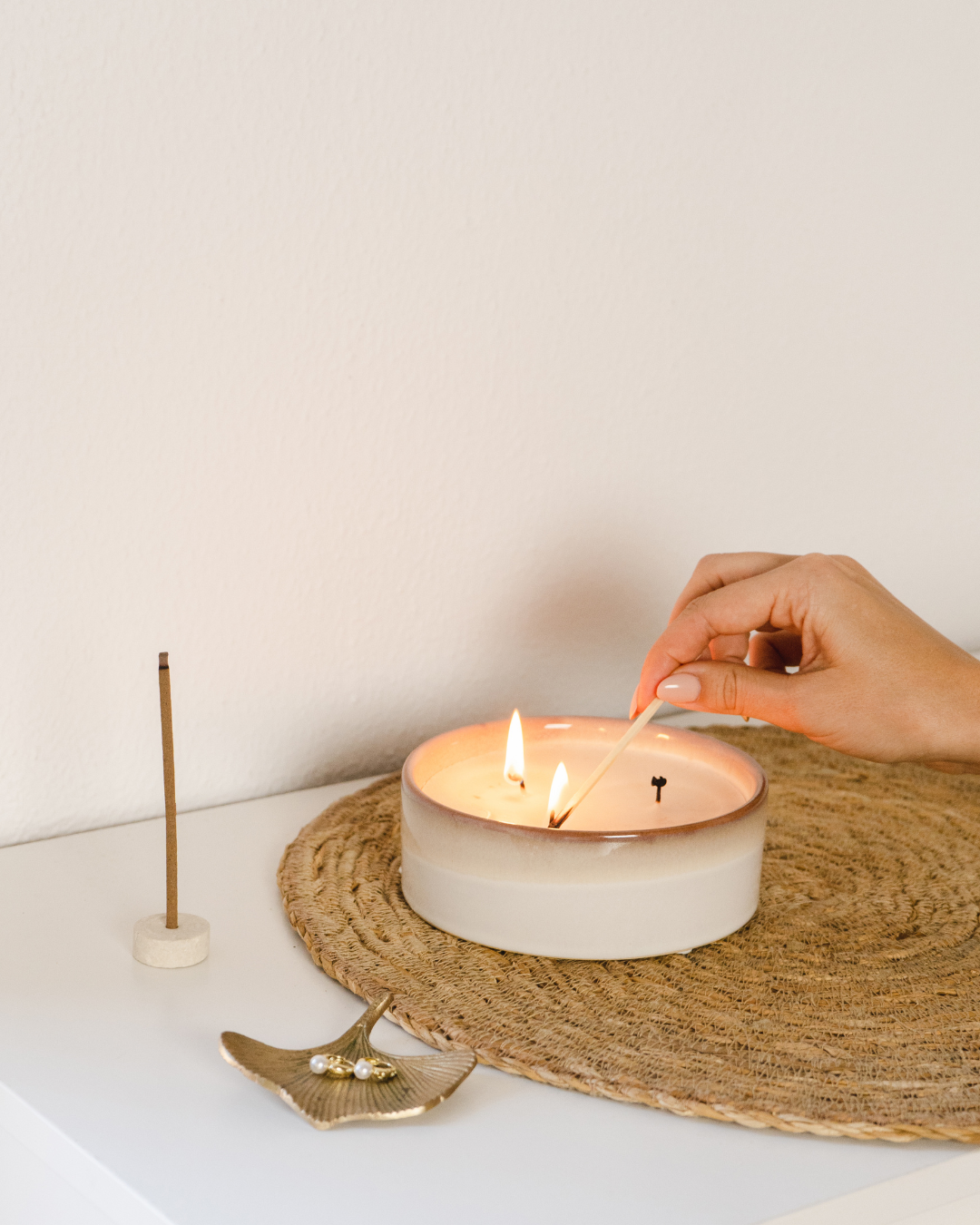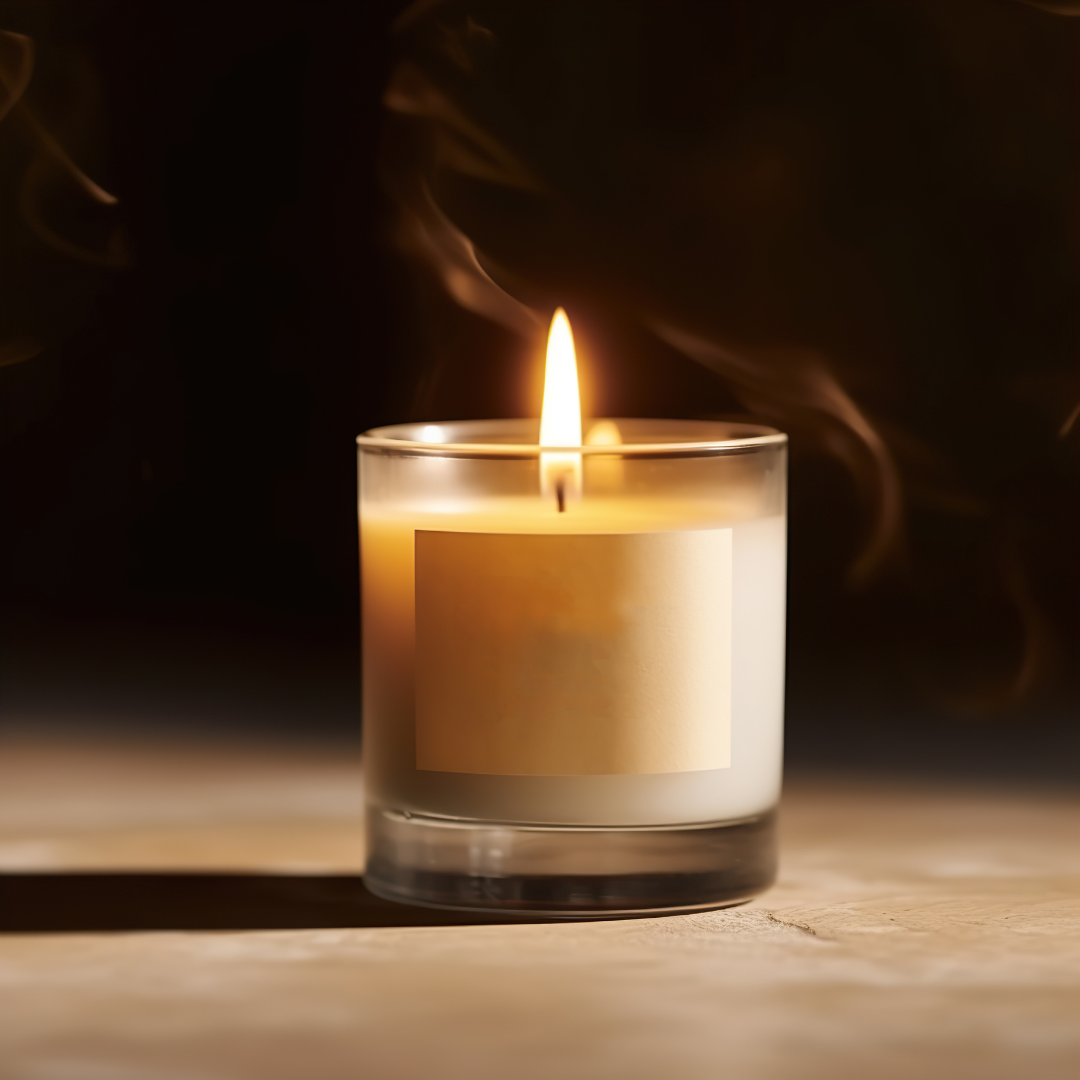Embodying Values and Touching Lives, from Performance to Practice
What Does a Consent-Driven, Trauma-Informed, and Inclusive Practice Look Like? with Megan Yankee
Once a high-impact dancer who moved audiences through performance, Megan now practices healing art and care through therapeutic touch
Welcome back to exploring the intersection of holistic health, equity, and the healing arts with the Equitable Wellness podcast. In this episode with Megan Yankee, a high-impact dancer turned licensed massage therapist, we explore Megan’s dearly held values and ask what it means in practice for healing (and continuous learning) that is consent-driven, trauma-informed, culturally responsive, all-abilities and 2SLGBTQIA+ friendly? The conversation delves into systemic issues, the significance of inclusivity, and challenges faced by marginalized communities. Megan shares her insights on the healing process, the complexities of chronic pain, and intending for safe spaces for all clients. The episode concludes with a look at Megan's future aspirations in the healing arts and her commitment to serving equity-deserving populations.
A full transcript of the podcast can be found below, at the bottom of this blog post.
Keywords
equitable wellness, holistic health, consent-driven practice, trauma-informed care, cultural responsiveness, LGBTQIA+ friendly, chronic pain, healing arts, massage therapy, systemic issues
Chapters
00:00 Introduction to Equitable Wellness Podcast
01:58 Meet Shayna and Megan
03:25 Megan's Background in Dance and Healing
08:46 Exploring Systemic Issues Through Art
14:39 The Impact of Personal Experience on Healing
22:47 Consent and Trauma in Healing Practices
33:41 Values in Practice: Consent, Trauma, and Inclusivity
36:19 Consent-Driven Practice, Empowering Clients with Agency
41:50 Trauma-Informed Care in Practice
46:20 Cultural Responsiveness in Healing Practices
53:02 Inclusivity for All Abilities and LGBTQIA+ Identities
01:01:51 The Non-Linear Journey of Healing
01:07:46 Transitioning from Performance to Healing
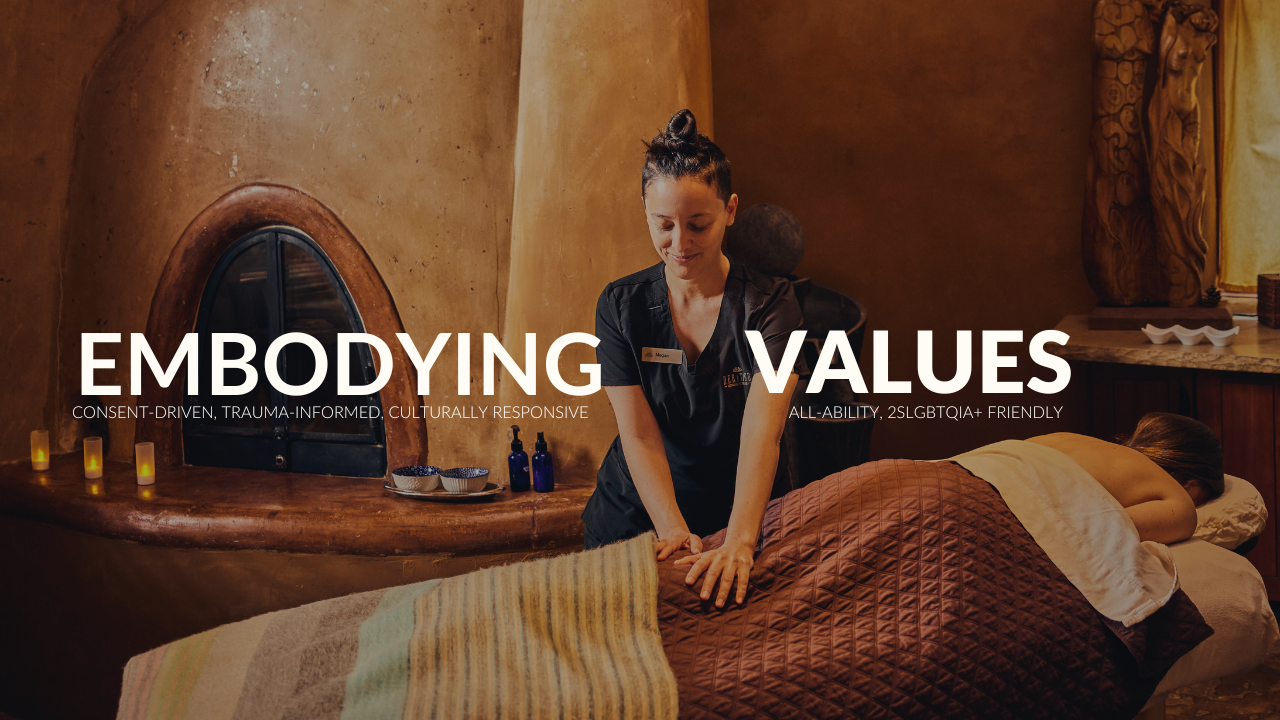
Photo by Jake Holschuh taken at Heritage Companies' The Living Spa at El Monte Sagrado Resort & Hotel
Consent means I'm giving a client agency.
Not just that I'm allowing them to be who they are in kind of this passive way. I am actively, especially with clients that present with signs of PTSD or trauma—whether that comes up on the table, sometimes very suddenly, or you see the symptoms sometimes right away as they're walking in the door.
—Megan Yankee, MFA LMT
What Does a Consent-Driven Healing Practice Look Like? (and why it matters)
It was a joy to meet with Megan, an artist who leveraged her lived experiences in stages worldwide as a performer and choreographer and in university dance classes as a pedagogue. Our interview tracks her body of work as now channeled through a liberatory healing arts practice that is consent-driven, trauma informed, inclusive, and receptive.
For Megan and I, longtime friends and colleagues in the fields of dance and bodywork, the corporal language of the body was our shared root communication and artistic expression.
It is a pleasure to grant space for the story of Megan’s arrival to the thriving practice she has today as a licensed massage therapist and what makes her work markedly distinct.
Our conversation journeys from traditional Pueblo land—in what is colloquially known as Taos, New Mexico, with its Red Willow peoples—to East and West Africa and voyages within and without. Megan touches on vast topics through her scholarly knowing: from somatics to curanderismo to Feldenkrais to, centrally, consent.
Megan beautifully applies her embodied learning of consent from her dance training at Texas Women’s University in Denton, Texas.
Amidst today's challenges of fascism, genocides, climate injustice, widening economic disparity, and diminishing safety for visibily trans, queer, BIPOC, disabled, and neurodivergent communities, among others (let’s name it), Megan demonstrates her priority to create safe space for communities potentially more likely to have experienced traumas in their lives.
And she does so through consent and culturally responsive care.
Without further ado, I’ll introduce Megan and some highlights.
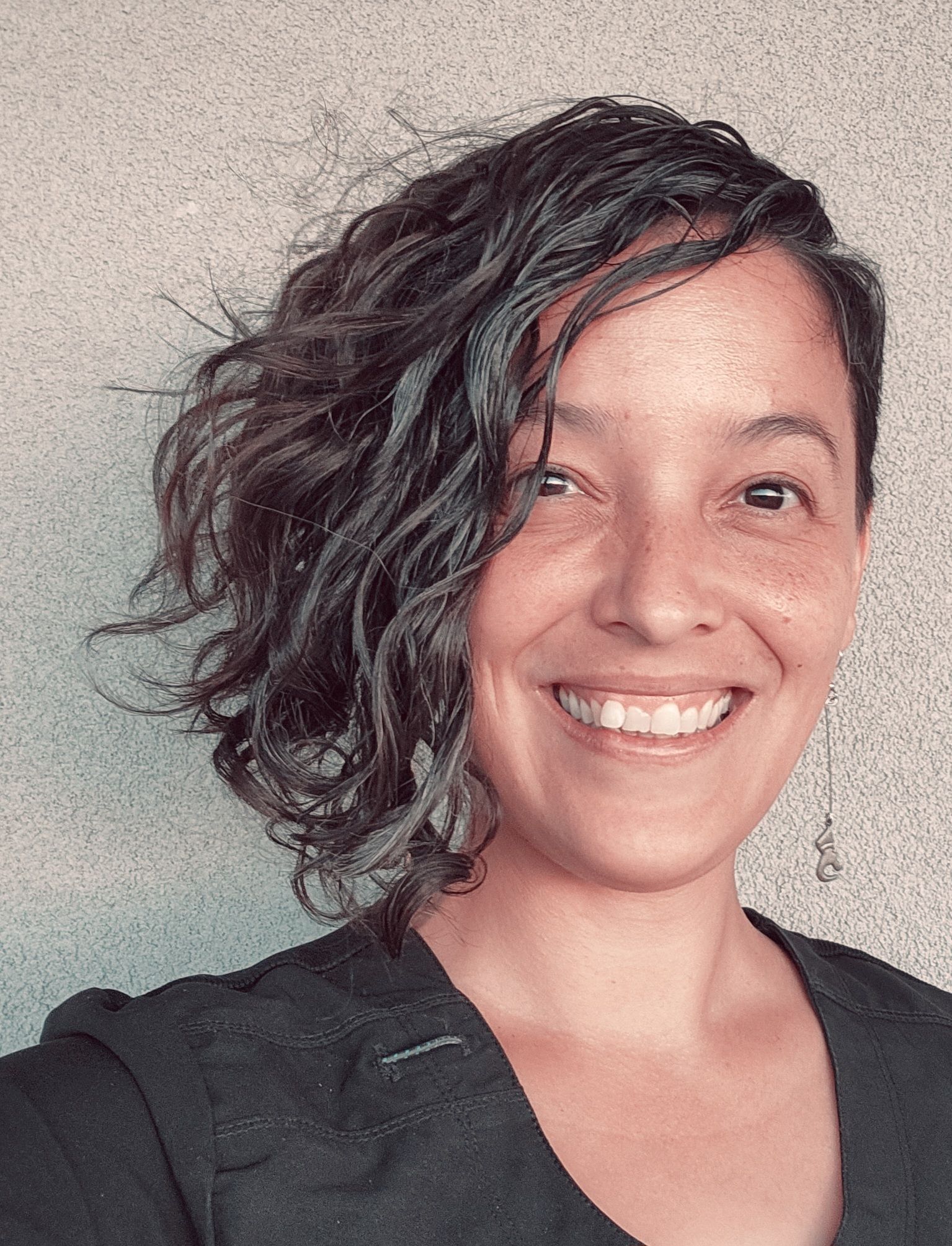
Meet Megan
Megan is a first generation mixed-race massage therapist. Her pain interventions are driven by a professional focus on experiential anatomy and light-medium-deep tissue Swedish massage, as well as traditional barefoot medicines like Marma Point Therapy, Chinese Medical Massage, and Mesoamerican Curanderismo. For decades, she toured internationally as a high-impact dancer, choreographer, and pedagogue, enduring numerous untreated injuries. Megan now leverages those lived experiences to support her clients who seek relief from pain; especially when it is associated with sciatica, headaches/migraines, frozen shoulder, and scoliosis. Her practice at every location is consent-driven, trauma-informed, culturally-responsive, as well as all-ability and 2SLGBTQIA+ friendly.
Select Highlights
Cultural Heritage and Identity Challenges
It's the lifetime of work. And I definitely, I appreciate how sensitive you're being around those topics and, and you know, it is, to the point where the silencing that you're hearing across academia and other circles in the United States has definitely touched me. And it's definitely touched how I approach even interviewing for jobs now. Like these are all things that people of my heritage, our shared heritage, have experienced for centuries. So in one way I am... made a little more whole by experiencing what my ancestors did. And another part of me is taken away because I can't fully be who I am outside of my house in order to be safe.
The Ethical Use of Artistic and Administrative Skills
So that was a really profound experience that informed me to say, okay, I have a skill set that I can use for good or evil, if it were to be simple. I could use that for collaboration, I could use that for bringing people together and working together on artistry and healing, or I could, it's another skill set where it could be used to keep people out. And I'm obviously less interested in the latter as a mixed person myself.
Creating Safe Spaces for Diverse Communities
Do you want me to use these pronouns or this name outside of this room? These sorts of things are questions that allow me to enable better care and more trust. And I don't yet see enough spaces that go out of their way to demonstrate that they are a safe space for those two communities specifically. So I... because I value those clients, because I know that clients from those communities are potentially more likely to have experienced traumas in their lives. I want to demonstrate. I'll fly a flag. I'll do whatever I need to do to communicate that I am intending for a safe space. I am intending to learn from those communities how to build a safer space for their people. That has brought me nothing but richness into my practice and continued learning in my practice. Those are two more terms you could throw into my values if you wanted to, because those are very, very important to me that I'm learning from my clients.
I'm gonna revert back to the name of my company, which is very meaningful to me. My namesake is Nepantla, which is a Nahuatl word that means “in between,” it's like a liminal in between space…
Probably the biggest thing I'd want people to know is to be as clear as we can that healing is not a straight line path.
Understanding Cultural Identity Beyond Labels
We are simplified as tri-culture, meaning Mexican descendants or Spanish descendant, white and native. And that is inherently problematic for a lot of people here because there's way, way, way more mixing than just like three groups of people. But I was just explaining actually on my anonymous Reddit account earlier today that like you can't, how do I say, if someone from the Pueblo, the Taos Pueblo lands on my table, they might have a Spanish last name. They might be a Lujan. They might have a very Spanish last name. They do not, in my experience, they don't want me speaking Spanish to them. The Pueblo revolt happened for a reason against the Spaniards. So there are people here from the Pueblo who… A lot of people from around the country might mistake in Spanish and assume that they speak or Mexican and assume they speak Spanish. I cannot do that. I cannot assume based off of how someone looks what their language is or who their people are when they arrive on my table.
Trauma Triage from a “Cultural Orphan”
In most cases, I don't see that as therapeutically relevant. They may not be ready for that. So, my consent is informed by my experience as a trauma survivor. I experienced one of the original earliest traumas that you can as someone who is relinquished by my first parent. And I've lived with that for 40 years. So I have embodied being a trauma survivor even as a child. So that lived experience plus my training and experience in dance and subsequently in massage therapy is what informs how do I help people even if it's a combat veteran, even if it's someone who was sexually assaulted last year, may not be therapeutically relevant for that last person to come see me and we would have that dialogue.
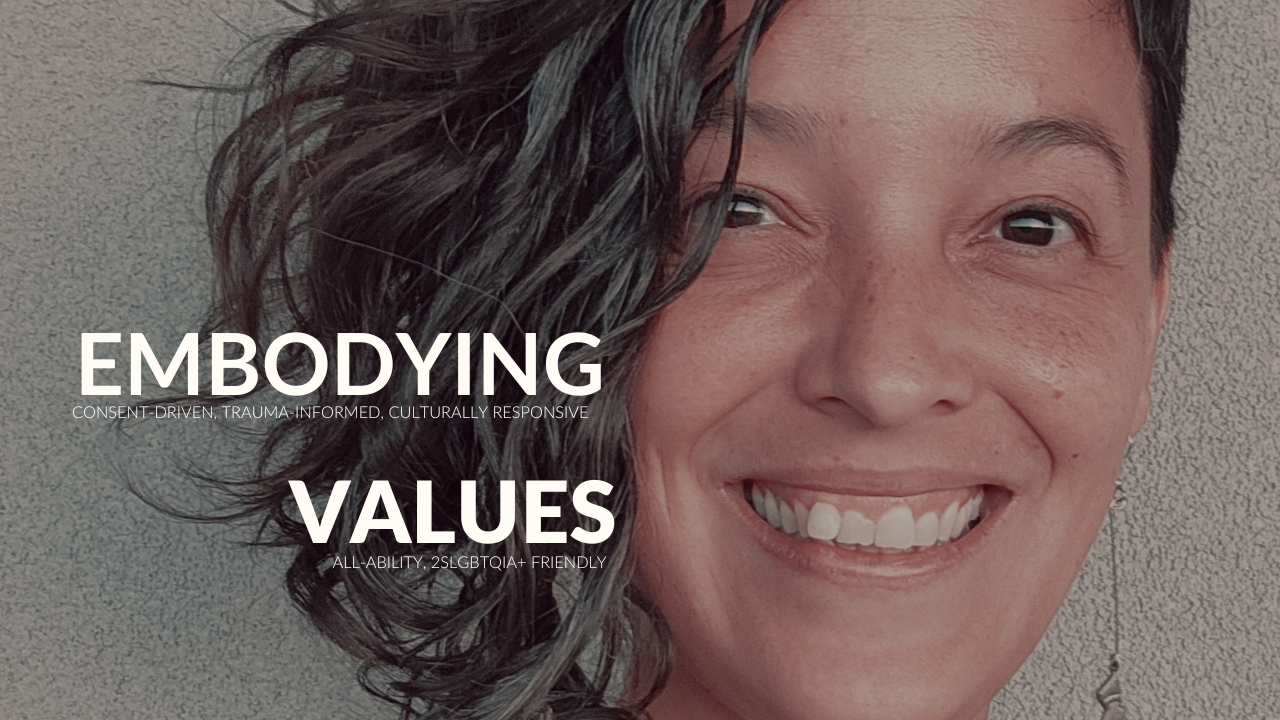
KEEP IN TOUCH WITH MEGAN
Megan’s massage therapy practice
https://nepantlabodyworks.com/
Connect with Megan
See some uncovered gems of select dance reviews referenced in the episode:
https://indyweek.com/culture/stage/the-commons-crit-megan-yankee-open-wounds-border-policy/
https://indyweek.com/culture/stage/the-commons-crit-megan-yankee-dances-through-mestizx/

Shay’s updates
Good morning and Happy Full Moon of April, todo el mundo! Good morning everyone.
It was evident to me from the response and engagement of my last post, Praise, Purple, Pulchritude, that I will be creating a second Substack.
🔮💜🪻
The art wants to live in its own space, and I will grant that space to shape new developments.
It will be called Shay’s Lounge, and in it I’ll write my creative writing, nonfiction pieces, personal essays, and memoirs.
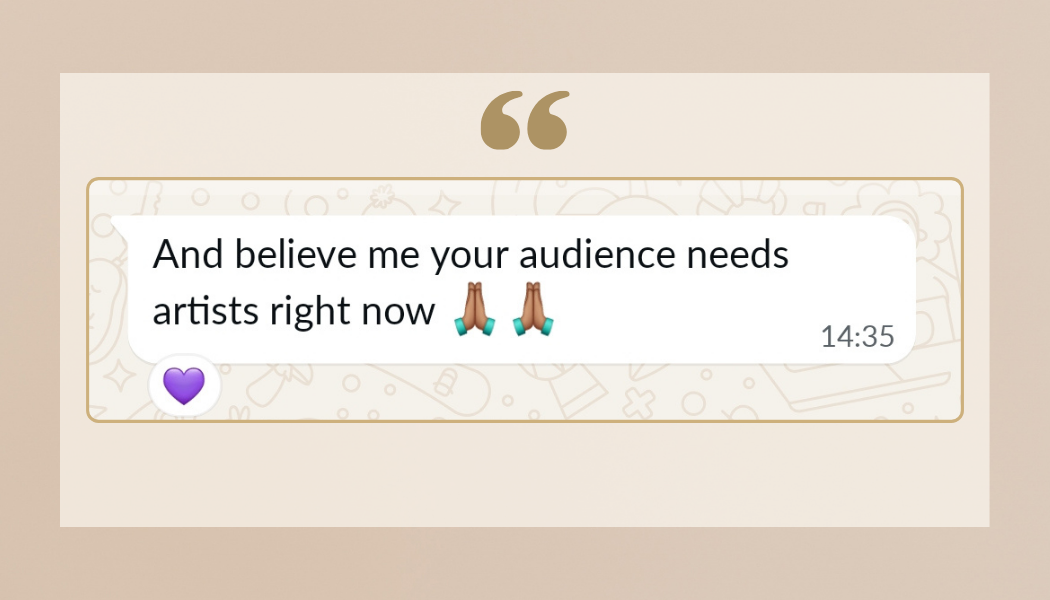
Otherwise, I have a final guest for the podcast this month, come the new moon of 🌑April 27th. After that, I’ll be turning my energies toward some time off in May to be with family visiting me here in Spain por primera vez. I can’t tell you how excited I am (though I’ve been slacking on the itinerary and planning and thus feel underprepared!)
Thank you for reading, watching or listening,

Full Podcast Transcript
Shayna Grajo (00:02)
Hello and welcome back to the Equitable Wellness podcast. If you are watching along on Substack or YouTube, you can find the full episode notes online at Substack at Equitable Wellness. You can subscribe also to support this work. Join the community and have episodes dropped right into your inbox.
So for those who are listening along on Apple podcasts, Spotify or other podcast players, welcome also. So I will make my little footnote now that I'm still trialing and erroring in the process of content creation and podcasting. I had a microphone I was going to use and it was accidentally misplaced the other day. So I am without a bit of an external mic support, but hopefully we can
enhance the audio later. And in terms of the visual quality, now I'm in my own apartment before I was in a different space and had to use a virtual background and I felt that hopefully trialing this new environment would suffice, but every bit is still an iteration. All right, so let's get into the podcast itself. And I have my little notes here that I'm reading along.
This podcast highlights passion topics about equitable practices in the health and wellness space.
For instance, we look at how spas, retreat centers, holistic practitioners, and services incorporate equity or collective liberation. And the podcast is perfect for business owners, service providers, coaches, personal brands, and artists who are passionate about the connection to equity in holistic health and healing arts.
Let me get myself a little bit of water. Megan, you want to say hi?
Megan Yankee MFA LMT (02:06)
Yes, I am also going to take a sip of my water and my lemon and my honey too, just to join you in preparing for a wonderful conversation as we always have.
Shayna Grajo (02:18)
yeah.
Okay.
I am your host, Shayna Grajo, a holistic guide to the practice of one's authenticity and online visibility, even amidst today's challenges of fascism, genocides, climate injustice, widening economic disparity, and diminishing safety for trans, queer, BIPOC, disabled, and neurodivergent communities, among others.
I bring to the table a background as a licensed massage therapist, yoga instructor, and former journalist, turned marketer and copywriter in the health and wellness space. And I am joined here today by Megan Yankee, a master of fine arts and licensed massage therapist, equally passionate about equity and liberation work in wellness. Okay.
Megan Yankee MFA LMT (03:23)
Definitely.
Shayna Grajo (03:25)
I'm going to read Megan's bio here.
Megan is a first generation mixed-race massage therapist. Her pain interventions are driven by a professional focus on experiential anatomy and light-medium-deep tissue Swedish massage, as well as traditional barefoot medicines like Marma Point Therapy, Chinese Medical Massage, and Mesoamerican Curanderismo. For decades she toured internationally as a high impact dancer, choreographer, and pedagogue, enduring numerous untreated injuries. Megan now leverages those lived experiences to support her clients who seek relief from pain, especially when it is associated with sciatica, headaches, migraines, frozen shoulder, and scoliosis.
Her practice at every location is consent-driven, trauma-informed, culturally responsive, as well as all ability and two-spirit LGBTQIA+ friendly. Megan, is there anything you'd like to add to that? I know, right?
Megan Yankee MFA LMT (04:38)
A mouthful. Sure.
And thank you for reading that. I'll just throw a few more things in there that are a part of my kind of down and dirty profile there. And that's that. As I said, I'm a retired dancer, LMT and pedagogue. Those are very, very important to my practice. Those three especially in informing how I work with clients.
I'm also a nonprofit in higher Ed burnouts. I spent most of that time developing those skills in those two environments as a practicing artist, a teacher, and then also as an administrator and all the way up to the board level and the, in my case, the artistic director level. So I've been literally from member all the way up to board and leadership throughout nonprofit.
And then higher ed, I stopped right at like the guest artist visiting professor level. So I didn't quite ascend into tenure, the tenure system. But yeah, burned out instead. And then I also, I'm throwing out there, I'm an AmeriCorps VISTA alum. So I am a professional volunteer as well. And I have lent my administrative capacities and nonprofit to the federal government.
through that program. And then last but not least, I was recently credentialed to provide care for veterans via their community care network. So, but I do have to say, I am definitely obliged to say I'm not, how do I say, I'm not endorsed by the VA. It's very important that I make that distinction. I am merely credentialed through the,
the very robust system that they have that allows for all kinds of healthcare providers to provide work for veterans through that system. So those are my other main four I'd throw in there.
Shayna Grajo (06:41)
wow. Thank you for elaborating on those. Definitely a lot we could pick and chew at, as it were. All right. So going along in my questions, you've said a good bit about who you are. Why don't you tell us where you're calling in from today? And I apologize. I do hear the dogs in my neighborhood barking, but hopefully...
Megan Yankee MFA LMT (06:48)
Sure, sure, sure.
No worries,
I'm surrounded and I'm expecting my black cat to speak up at any point. So just a heads up, she might introduce herself and have her thoughts known as well. But I am phoning in today from traditional Pueblo land and I'm looking at my notes to make sure that I'm clear and precise with my language here. I'm on traditional Pueblo land right now.
These are also these people also refer to themselves as the Red Willow people of northern New Mexico part of the Pueblo kind of group and Colloquially we are known as Taos, New Mexico up here in northern New Mexico we are the Watershed the watershed and the place where the Rio Grande comes from this area It topples down from our mountains and then flows into this beautiful great
body of water that we all know. And it's been really profound to move and live and practice in such a history place. So it's my honor to be able to speak to my proximity to these communities.
Shayna Grajo (08:23)
Fantastic. Okay, let's get into your background as a dancer. You have a dance background as a high impact dancer, choreographer, and pedagogue. I was hoping you could tell us what you studied.
and where, if you don't mind, where you have performed as well as how that work linked to liberation. Yeah.
Megan Yankee MFA LMT (08:56)
Yeah, keep
me on track, because it's a long... The more I think back, I'm like, wait, when did it start? So I started dance classes as soon as I could walk. I was practically running out of the womb. So landed feet first and was moving and dancing around very young.
Shayna Grajo (08:59)
Okay.
Megan Yankee MFA LMT (09:21)
So my parents threw me in some dance classes early, switched to gymnastics, and I was a competitive gymnast. By the time I finished up about 10 years into that, made my way into a marching band via an excellent program you might be familiar with in Lake Highlands area of Dallas, Texas. And from there, I was inspired by our mutual teacher, Randy Phillips, to move into drum corps.
And then arriving in drum corps, met a choreographer there who was the first person I'd met who'd studied dance in college. I didn't know that was a thing despite learning later that my mother didn't take the scholarship, but she was offered a scholarship in dance to the University of Kansas. So that was a big, lovely connection to make later on.
So I went on to study and earn my bachelor's and master's in dance at Texas Women's University in Denton, Texas. They are a program that offers the bachelor's level with a teaching credential if the student is interested, two master's degrees and a PhD in dance for those who wish to study the form from a theoretical.
standpoint, I studied from more practical standpoint at the MFA level, which is also a terminal degree, meaning I am qualified to teach and earn tenure at the university level throughout the United States. During that time, I was largely working within university systems as an educator of dance, teaching dance theory, teaching dance in the studio, teaching dance.
Actually, via computers, I had several dance theory classes that I taught to the undergraduate level. One of them was pop culture and dance, and the other was a women's studies course via dance. And so, incredibly diverse skill set within dance. I think a lot of people think you are professional dancer, you're dancing with a company.
and my route was very different. I was independent, so I was becoming an arts administrator on the side to pay for my bills, while I was also working very tight-knit into communities building projects, but also earning my own grants to travel abroad and work on projects essentially with other dancers that I'd come to know. So I had the fortune of...
performing in Belfast, Northern Ireland and an excellent project there, as well as presenting other people's choreography, and as well as my own in both West and East Africa in short term, about 10 day long projects there. And I suppose upon kind of burning out of that world of that COVID.
threw me out, essentially. COVID made it impossible for me to make a living as a dancer, as a working dancer. So, but by that point, I had just started to earn a class following in Durham, North Carolina. I had just started to get some press, which you noted in one of our last communications. I finally was reviewed, which is kind of like the first major step into...
being able to make a living as a professional dancer, choreographer. And the cards decided I had a different purpose moving forward. And I transitioned after COVID into massage therapy.
Shayna Grajo (13:14)
Right. And yes, I'm aware that there were other considerations at that time with family and with your partner, since we've known each other for very long time. We're very good friends. Thank you for sharing and reminding me the kind of steps you've taken in your movements, in the moves you've made, in the performances that you've
Megan Yankee MFA LMT (13:21)
for sure.
Yes. Yes.
Yes.
Shayna Grajo (13:43)
premiered throughout the world. It's so great to remember that the travels for touring and performing. Now then, we in this podcast are not going to touch on...
your involvement with ICE and immigration advocacy work due to the sensitive nature of disappearances in northern New Mexico. However, you had alluded already to your AmeriCorps VISTA work within your location.
But tell me, apart from that involvement, how has your academic and artistic background looked at the systemic issues and challenges that we're facing, and how has that thread been a part of your dance choreography?
Megan Yankee MFA LMT (14:39)
Yeah, I see, I was greatly and profoundly inspired by the Black Lives Matter movement. I'm not gonna stumble through that. And as a mixed race woman, had, up until that point, I had had so many profoundly generous experiences within the African dance diaspora that I was like,
know, 100 % behind that movement to the point where I was becoming a sort of ally in the way. Like, I wanted to help so much, but it was helping a community that was not one that I was from and not one that needed me, per se. Like, you know, I would be more helpful potentially supporting from my own cultural grounding and roots. So I learned that the hard way despite my support.
my unending support for Black Lives Matter. So in that time, at that, it was very wild, at that same time, I was working for the American Dance Festival, like just, just right before, you know, Black Lives Matter exploded. And while I was with ADF, I had been charged with working with
USCIS in order to help them get artist visas. So the second year that I was with ADF, was charged with, my gosh, no, that was the first year. The first year I worked a full summer with ADF, they charged me with getting over a dozen international visas with very little institutional knowledge as to how they had done that previously.
The process that I went through to learn how to communicate with the United States government, prove that all of these artists are worthy of a visa, proving to the necessary bureaucrats and federal workers who have no history in arts or dance, proving to them that these people more than deserve to have a visa to come over here and share their artistry with United States.
Those two things, the Black Lives Matter movement and my interaction with USCIS, which was fine, it was not contentious at all, really gave me the opportunity to focus on what it is that my skill set can allow for my society. What it means to...
what it means for an art, an American artist to support foreign national artists and welcome them. I'm the actual, the facilitator. am the one that it came down to the line when we had Israeli artists who didn't have their visa as they were jumping on the plane to come to the United States. How, you're like, what is the facilitation process to make sure that when they land, they are allowed to be here?
So that was a really profound experience that informed me to say, okay, I have a skill set that I need to, like, I can use for good or evil, if it were to be simple. Like, I could use that for collaboration. I could use that for bringing people together and working together on artistry and healing. Or I could, it's another skill set where it could be used to keep people out.
and I'm obviously less interested in the latter as a mixed person myself. And then as far as my artistry, I was gonna try to keep that as brief as possible actually, but I brought the book with me that I used for one of my more, one of the works you mentioned that I have reviewed. Let me actually uncover his full name. So I had words from this book projected.
as a part of the piece that was reviewed. And if you don't mind, I'd like to read an excerpt that I came across that actually mentions Uvalde. It mentions Uvalde County and I came across and it was like, have to share this with Shayna because it's so powerful. So it's a paragraph, but I will go through it. So it says, "In other areas,
Shayna Grajo (19:01)
Yeah, please.
Yeah.
Megan Yankee MFA LMT (19:15)
Mexicans came in for suspicion on account of their stand against slavery during the latter 1850s. In Matagorda County, all Mexicans were expelled on the pretext that they were vagrant, lower-class peons who have, quote, 'no fixed domicile, but hang around the plantations taking the likeliest of Negro girls for wives.
They often steal horses and these girls too and endeavor to run them to Mexico.' Expulsion was described as a 'mild course' by whites who would have felt justified in resorting to 'lynch law.' In the next year, Uvalde County passed resolutions prohibiting all Mexicans from traversing the area unless they had it in their possession
a passport granted by some white authority." So books like these where I am filling in the history that I lost, learning Texas history in Texas from gringos and gringas and descendants of Tejano settlers, deeply, deeply feeds me and it fed my art back when I was still making.
actively making art. And a part of my art making is very blatantly and intentionally putting the words of settlers, American settlers, back into the forefront and making them public again. Because there should be no question why there's challenges between people, especially in Texas, especially in the Southwest, when we have our history of
here for us and the smallest connection here is that this is a UT Austin publication. My father went to UT. It's a small connection but it's you know like I would have a better chance of talking to my family about these kind of things if I wanted to. Simply by saying hey this book was published by your university that you went to maybe do you want to know anything about it with me? So I've pulled away from the art making
part of my advocacy, but the things that fuel me are things such as this, no matter if I'm art making or if I'm in my clinic or if I have someone on the table that's asking for help. So it all feeds. It all feeds the work.
Shayna Grajo (22:00)
Yes, and of course like it is such a rich history and tapestry and layer, you know, there are so many layers of stories that go into the uncovering of what what feeds you and your work that we really can't touch on in this episode because it is the lifetime of work.
Megan Yankee MFA LMT (22:13)
Mm-hmm.
You're right. Right.
It's the lifetime
of work and I definitely, I appreciate how sensitive you're being around those topics. you know, it is to the point where the silencing that you're hearing across academia and other circles in the United States has definitely touched me. And it's definitely touched how I approach even interviewing for jobs now. Like these are all things that people have.
my heritage, our shared heritage have experienced for centuries. So in one way, I am made a little more whole by experiencing what my ancestors did. And another part of me is taken away because I can't fully be who I am outside of my house in order to be safe.
Shayna Grajo (23:17)
Yeah, it's very deep. Let's go into why then you were called to the world of healing and bodywork.
Megan Yankee MFA LMT (23:20)
Mm.
Hmm, I have to say it's injury. It's injury, it's lack of access to healthcare. Those two things in combination for most of my adult life have meant that I've needed to cope with what I've now identified as what the federal government terms as high impact chronic pain.
It's defined by one major life activity like eating, walking, bathing. Any one of those major life things that's affected for more than six* months at a time [*correction: three months] puts you in the category of high impact chronic pain. And so I've been there for a long time. I've been there since our drum corps days together.
So that's going on over two decades that I've been having to find remedies of my own. At one point in massage school, realized that I've been giving myself self-shiatsu to cope with some of my pain. And so that's a big part of it. In between my two years of marching drum corps, I did an interview where I said I wanted to be a massage therapist, you know, even at 20.
So I didn't have 20 years of injury at that point. So I would be remiss if I didn't say there was something in me as a young person without injury that also felt this call to be a massage therapist. I just, as a young person, delayed that slightly while I developed my dance career. And I...
I remain slightly melancholic about the fact that my choice of going into dance meant more injury and more pain. It sounds obvious now that I say that, but my focus and the focus of my school was on somatics. So while I was...
using and learning experiential anatomy and somatics to heal myself as a dancer, I was also not getting healthcare. So it was a very, it's a very complicated mix there of I'm healing, but what I need is a doctor, not to be understanding how the digestive juices in my stomach work and how that makes me feel when I want to dance. And that's.
That's very important too, it's lovely, powerful work, but I needed a doctor and I didn't have, I just didn't have access to be able to see anyone for long-term care. And I'll only add that massage therapy has doubled my income post-pivot.
And it's not to say I was humble before I was just skirting the poverty line So I'm not saying I'm making a bunch of money now, but I'm I've essentially doubled and I'm living so much healthier Financially and in my body having burned out from dance so I while I'm sad about it, it's I'm Again, it's bittersweet. I'm much happier and much more satisfied
helping clients out of pain on a regular basis.
Shayna Grajo (27:12)
Well that is beautiful that you are healing through healing and and that um yeah tell me how how your experiential knowledge as a dancer then informs your practice in massage therapy and in healing arts.
Megan Yankee MFA LMT (27:14)
Yes, I'm lucky. I'm a lucky girl.
Yeah, I think we'll talk about this more later if I don't dive into it too deeply at the moment. And I would say that consent is a big thing that I got from dance. Consent is now being discussed a little bit more. I'm not paying attention to the dance world as much as I used to, but I remembered seeing more papers on it, more conferences on...
on consent and empathy as well. So I think it started for me when I noticed that I, not noticed, it was made very clear to me that I have students who are ACE survivors, Adverse Childhood Experience survivors. And when you begin to work with those kind of, when I began to work with those kind of populations,
It's a matter of being the teacher that goes over to students and says, move your shoulder like this. Like it shouldn't be up. should like, teacher comes over and physically moves your body to where it needs to be. That's dance all over the world. That's like how dance works in most cases. But I found in approaching my students that even children, especially children, really, really dig it when you're like.
I have some feedback for you about your shoulder. Would you like to know that feedback? And if they say yes, I would say it would be helpful for me if I could put my hand on your shoulder to demonstrate to you the difference that I'm trying to teach you between what I see and what I know to be healthier in your body. So I'm not saying, hey, your shoulder's wrong. I'm going to fix it for you.
And that came directly from my schooling. That is Feldenkrais, if you're familiar and if the listeners are familiar to Feldenkrais techniques. One of their main, main, main principles is, "To correct is incorrect." And I've loved that. I used that as fodder for my thesis, essentially. And the notion being, and I'm paraphrasing Feldenkrais now at this point,
The notion being that like where you and I arrived today talking to each other, your body, the way that it is, it has perfected itself to be living the life that you have right now. And same with my body. you know, do I have aches and pains? Do I have postural things that people could see as needing correction or fixing? Sure.
but I do not welcome people to provide me that feedback automatically when they see me. That is unsolicited and I don't accept that. I also don't go around scanning my clients or other people for things for me to fix or any kind of dysfunction. Like I honor first that what other people may see as a dysfunction as I see it as an adaptation.
Now, if that adaptation hurts you, that's one thing, I can help you with that. But if it's just an adaptation that you've needed to arrive with me on this table or with me in this podcast, that's none of my business. At most I'll say, man, you have a gorgeous adaptation. I'm really honored to be around you and your adaptation today. So I think in summation, that's probably because as a dancer, we are physically judged all.
Shayna Grajo (31:17)
Yeah.
Megan Yankee MFA LMT (31:28)
the time by everybody and I understand why that's the case. I just stopped agreeing with it at a certain point when I saw that that would be harming young dancers. When that harms them, once I realized that I was done. And I'd been on the receiving end of overcorrection as a dancer and it has harmed me and stayed with me.
so yeah, I think that's probably the biggest thing. everything else, you know, most, most people could probably put together. I feel my, I spent 20 years learning how to understand proprioception, how I move, how I feel. I, that doesn't always translate to Shayna's body if Shayna's on my table, but I can, I have that skill and experience to kind of infer like, maybe Shayna's feeling like this on the table. I'm going to ask.
And having gone through administration and worked with USCIS, I am not afraid to ask and I'm not afraid to ask with consent and with gentleness so as to not impose like, Shayna, you need to fix this thing. This is like bad and you need to pay me for six more sessions for me to fix it. Like that's a paradigm that I completely reject. And that's because of my dance training.
Shayna Grajo (32:46)
No, I feel that hardcore because in the dominant systems of oppression in business and in marketing, those are still the existing paradigms of fixing problems, selling solutions, not asking for consent about messaging that might be unethical, and things that I'm more or less new to.
Megan Yankee MFA LMT (33:02)
Yeah.
Shayna Grajo (33:11)
in some ways, but then in that embodied way of kind of having the tactile experience of it, it's interesting to kind of translate that for other kinds of work. And I love that you bring up Feldenkrais and to correct is incorrect and ideas of consent and somatics and working in these more...
Megan Yankee MFA LMT (33:13)
Only in some ways, yeah.
Good medicine.
Shayna Grajo (33:34)
if experiential, you will, touched based ways that have these way broader applications across the board in economics, in business, in all other kinds of administration. So let's get into then the nitty and the gritty.
Megan Yankee MFA LMT (33:41)
Yeah.
Shayna Grajo (33:51)
You describe your practice as consent-driven, trauma-informed, culturally responsive.
Megan Yankee MFA LMT (33:53)
thank you.
Shayna Grajo (34:01)
as well as all ability and 2SLGBTQIA+ friendly and I'm hoping that we can go through each of these values and what they mean to you in practice. I know that you already have gone into consent a bit but tell me what does it mean to you to have a practice that is consent driven and we'll go down the list.
Megan Yankee MFA LMT (34:14)
Mm.
so in practice with consent, it, I'm, I'm looking at it as a living document almost because it's not something that's like, now understand consent and I'm perfect at it. Like, I find that there will always be someone that lands on my table who's need for accommodation in some way will.
In my mind throw me. I of course don't let myself be physically thrown as a therapist But in my mind I have to take a step back and say okay this this is a no They're saying no to this one this one thing that is a constant in my practice I have to be ready for a no at any time and I think Where my dance training from Texas Women's University specifically comes in is that consent means I'm giving a client agency
not just that I'm allowing them to be who they are in kind of this passive way. I am actively, especially with clients that present with signs of PTSD or trauma, whether that comes up on the table, sometimes very suddenly, or you see the symptoms sometimes right away as they're walking in the door. You just never know. And you will always, I...
think I will probably always have clients who are showing symptoms but do not acknowledge or have not been through a process that allows them to see how some past events might be affecting their body still. So when I encounter those clients, I take a good time of my intake and reiteration throughout the session to
help them regain confidence in agency in saying no. I find that saying no is sometimes more important than helping them say yes in the beginning. In the beginning, like putting up a boundary and affirming it has been so powerful for me that I don't expect or demand that of my clients, but I give them the space to have agency to say that.
if it becomes available to them. So one no would be, let me think, a good no. I mean, very simply, deep pressure. Deep pressure. I don't think in most cases with a first time trauma survivor on my, I guess we're jumping into trauma, trauma responsivity, but they're very linked. I...
I want... hmmm...
I want them to know that I am act and I do try to be clear about this that I'm actually enthused by a no when they land on my table and they say no and if they if they've stopped me at some point or if I am thinking okay, maybe therapy therapeutically they might need a little bit more than medium to resolve this adhesion, let's say I
will pause myself and say, okay, here we are in a place in your body that I find a deeper pressure is more therapeutically relevant. Now, that's only if it feels good to you, you like it, and you like it as the whole time I'm doing it and you like it afterwards. So there's a whole tail end after the session that you might've said up until the point we ended, I love this deep pressure.
but then you leave and you're sore and you don't like that afterwards. Like that's the kind of conversation that I'm trying to encourage from those clients. But that's consent based the whole time. I'm not going in and saying, you need deep pressure here. Like just like giving it to them because I think it's therapeutically relevant. Cause it's not therapeutically relevant if they go away and they're in pain.
In most cases, I don't see that as therapeutically relevant. They may not be ready for that. So, my consent is informed by my experience as a trauma survivor. I experienced one of the original earliest traumas that you can as someone who is relinquished by my first parent. And I've lived with that for 40 years. So I have embodied being a trauma survivor even as a child.
So that lived experience plus my training and experience in dance and subsequently in massage therapy is what informs how do I help people even if it's a combat veteran, even if it's someone who was sexually assaulted last year, may not be therapeutically relevant for that last person to come see me and we would have that dialogue. And one last little part of that would be
that as I came across a paper, I wish that I could quote, and I wish I could give you a title and a name, but I am speaking into the ether at how much appreciation I have for a group of writers who were studying curanderismo and how that can intersect with our current Western allopathic mental health space. And one of their conclusions was that curanderismo,
massage therapy bodyworking is contraindicated for someone who is living with a trauma or PTSD who does not also have a mental health practitioner already in their orbit that they can go to. So that alone, I, that's completely hugely crucial for me to acknowledge like, okay, someone with.
symptoms of PTSD lands on my table. They haven't acknowledged it. I haven't not maybe not able to acknowledge it just are not on that path and that's totally fine and relevant. I have to be able to say clearly with language non-judgmental very gentle. I'm so glad you've landed here with me today. Do you have a mental health practitioner in your orbit? Because massage therapy can unlock things in your body.
It has a history of unlocking things in your body. And if you don't have a mental health practitioner with you, that is dangerous for you. So there's a lot between those two terms, consent driven. I think I use consent driven because there are so many people who have experienced a trauma and have not digested it and don't want to. They actively like don't want to go back to the thing that traumatized them. They're okay with me.
on my table of course, but there's protocol that I've developed to make sure that they're safe and that's consent based.
Shayna Grajo (41:50)
Mm-hmm. So juicy, so deep. Wow. I mean, I want to ask the question about what all is on your consent forms, but we're going to go to the next question.
Megan Yankee MFA LMT (41:55)
Mmmh.
It's mostly
verbal to answer your question, like beyond like the straight legal liabilities and that sort of thing. It's entirely verbal, that kind of communication with my clients.
Shayna Grajo (42:17)
Wow, and I just appreciate the great depth of care for obtaining this consent that you provide. What does it mean to have a practice that is trauma-informed? Maybe you also covered that.
Megan Yankee MFA LMT (42:23)
Mm.
Thank you.
Right. If
there's anything extra, I mean, there is so much in the paperwork, there is so much that's verbal. But on a simple, practical level, I hear often, I am hands-on 60 minutes. There's no point where I'm not, from plenty of other massage therapists, it's hands-on, my hands don't leave the client's body.
Beautiful love that as a practice love it as a marketing tool like great. That's what clients should expect But I found in working shout out to Erin Bailey in South Carolina another dancer massage therapist that I just adore She's the first one massage therapist that You know that moment Plenty of massage therapists don't keep our hands on bodies the entire session
When you remove touch from the client after working with them on an area or whatever, and you go get more oil or you go check your towels or you go to the other side of the table, Erin Bailey was profound in her ability to re-enter touch after leaving. And as a trauma survivor receiving her care, I was always like, okay, in my little mind recipient, I was like, when she goes away, she has to come back.
Like she has to model and demonstrate that re-entrance to me. And I see a lot of, plenty of other great massage therapists that are like oil and go, you know, and that's their practice and I love it. There's nothing wrong with it. I tend to be drawn to the massage therapists that they don't start the motion as they've touched the body. They arrive at the body and then they begin.
the therapy. And so that's something that for me as a trauma survivor was really, really helpful in gaining and building trust with a therapist. So that's something based off of Erin's work that I have maintained and it's been reinforced in the Marma therapy training that I've received. The idea with Marma is that they're sacred. So you don't crash into it, you don't dig into it, you don't...
arrive at it just kind of willy-nilly, you arrive to the point very intentionally before you move it around. You just kind of, you hang on the point with the person before you manipulate or change anything. So that's kind of a more nitty-gritty practical application of trauma-informed work that I take part in and that I encourage in other people whenever I can.
Shayna Grajo (45:24)
Well, yeah, I know what you mean. As a massage therapist, I know it's, that there is this kind of...
Megan Yankee MFA LMT (45:29)
Hahaha
Yeah, I mean I've seen even
videos of Lomi Lomi where they're like, arrive at the body and they're moving already. So there's not even anything, there's nothing wrong with working that way. And working that way can still be trauma-informed, it's just not how I arrived at trauma-informed work. What were you gonna say though?
Shayna Grajo (45:57)
and nothing, just that, I wanna say the choreography, but like, that there's a touch of the client that happens without touching, that there's a healing that comes from the walls of a space, right? In terms of energy for a body.
Megan Yankee MFA LMT (46:01)
No.
Mmm.
Right.
Absolutely.
Shayna Grajo (46:20)
But yeah, I think it's also, you know, you and I have this kind of tactile information ingrained, and I think any massage therapist listening would know exactly what you're talking about. Let's go on now to a practice that is culturally responsive. What does that mean?
Megan Yankee MFA LMT (46:30)
Yes.
Mm-hmm.
Yeah, that, I mean, that stems from what I'm kind of keying into for myself as being a cultural orphan. I mean, as a mixed race person, ⁓Ni de aquí y ni de allá, I don't feel at home in monocultures or monoracial or monoethnic spaces. So I am constantly code switching depending on who I'm around anyway. So that's sort of the...
foundational roots for being culturally responsive. But then, you again, as a dancer, I was learning dances from Africa, from I wish I'd learned more from Mexico, learned dances from all over the United States, including Daystar choreography that is an old, an old legacy wolf dance from her Native American
her native and indigenous heritage have learned so much from my very privileged experiences cross-culturally. So I have those values ingrained and I've been hand slapped, I've been slapped back in plenty of those spaces where
I was so enthusiastic about learning the forms and learning the dances that I would overstep within the culture in other ways. So it's not that it's just been roses the whole time. I've definitely experienced pushback and challenge. I was gonna share one of my partner's experiences, but I better leave that to him to share. But both of us have experienced this kind of
need to code switch and act appropriately with this culture in this space and then have a completely different cultural experience and interaction with this culture, neither of which would have been my partner's or my home culture if we were to even try to define what that means. So...
The other side of that is that here in Northern New Mexico, we are simplified as triculture, meaning Mexican descendants or Spanish descendant, white and native. And that is inherently problematic for a lot of people here because there's way, way, way more mixing than just like three groups of people. But I was just explaining actually on my anonymous Reddit account earlier today that like,
You can't, how do I say? If someone from the Pueblo, the Taos Pueblo lands on my table, they might have a Spanish last name. They might be a Lujan. They might have a very Spanish last name. They do not, in my experience, they don't want me speaking Spanish to them. that's, know, the Pueblo revolt happened for a reason against the Spaniards. So like there are people here from the Pueblo who...
A lot of people from around the country might mistake as Spanish and assume that they speak or Mexican and assume they speak Spanish I cannot do that I can not assume based off of how someone looks What their language is or who their people are when they arrive on my table? so it's become much more of a Welcome to my table with your whole self Whatever you choose to share with me if that's anything at all
I will celebrate with you on that table, assuming it's not contributing to the silencing and pain of other peoples. Welcome, and I will celebrate, not just acknowledge, but celebrate what it is that you have chosen to share about yourself and your people with me on the table. Alternatively, I also get like...
say Mexican and or Spanish descendant people who land on my table who do not speak Spanish. So I have like tried to speak Spanish with them and they're like I don't know what you just said. And that's because there are I want to say a good number of Mexican Spanish descendant people here whose parents and grandparents were silenced, lynched, harassed.
everything enslaved like and same with the natives enslavement here all of those things can land on my table and lo and behold you might I might one day there might be a mixed person that lands on my table who has knows all of that about their history and still doesn't want to talk about it doesn't want to speak Spanish with me doesn't want to speak English with me like I have to be ready because
The complexity of the history of culture here in Northern New Mexico lands on my table every day through the amazing people who live here. And because I honor what the people have allowed me to build of a life here, it would be incredibly disrespectful for me to do anything but give them the space to share who they are and...
how they see the world on the table with me. It would be detrimental to my practice and their resolution of pain if I didn't do that. It just doesn't make sense to do anything else to me.
Shayna Grajo (52:42)
Hmm. Yeah. I hear that. Beautiful. All Ability and the 2SLGBTQIA+ friendly. Tell me about that also, please.
Megan Yankee MFA LMT (53:02)
Sure, so all ability, that stems from my dance training as well. Very early on at Texas Women's University we were confronted with lessons on what it means to be disabled as a dancer. I use the term all ability in hopes that that is not offensive to people who choose the disability moniker.
because that is a very strong culture. It's intended to mean that whatever all of the abilities that you bring to the table will be honored. Your ability to use a wheelchair, your ability, the disability that lead you to using the wheelchair. the language is of course very important and I will acknowledge that to anybody who arrives at my table and says no I'm disabled man like call me disabled.
However your body arrives on the table, I will serve. I will serve. And that is what's very important and this is true for the Two-Spirit LGBTQIA+ community as well is I'm not from those cultures. I don't know what your accommodations, I have a guess of what an accommodation in either of those communities might look like if they're necessary for a client, but I don't assume.
I ask the human who has arrived with me in the room if they need anything. I can't even assume that they need an accommodation. I simply ask, is there anything I can do here to assist you? Do you want me to assist you? If you don't, cool. If you do, cool. I'm here either way.
slightly different when we get into this two-spirit LGBTQIA +, not to to erase anybody's intersectionality of those two communities. I don't think I find all that much, I have not encountered all that much need for accommodation outside of pronouns and proper names. For example, I have had one client recently who in all of our
spa systems was under one name of one gender. and I noticed at the very, very, very bottom of their intake, they signed their name as it was in all of the clinics and all the paperwork. And then after that very, very tiny in parentheses and quotes, another name that was of a different gender traditionally.
So there wasn't any place on the form for them to say, have a preferred name and or I have a preferred gender. So that's a matter of, you know, not going to the, you know, going to the client in public saying, hey, what's your, I, what pronouns do you, what's your name? Like, what's this on your form? You know, like waiting until, so it's very clear as they presented.
And as the rest of the space knew them under one name, okay, this is how this person is known and they acknowledge this is how they are known. Arrive into the space where we are closed off from the rest of the public, close the door and then ask, I noticed that you included another name. Is that the name that you would prefer for me to use?
And then also saying, I've noticed that you are using this set of locker rooms. Are these gender, sorry, are these pronouns appropriate to use for you? Do you want me to use these pronouns or this name outside of this room? Like these sorts of things are questions that allow me to enable better care and more trust.
And I don't yet see enough spaces that go out of their way to demonstrate that they are a safe space for those two communities specifically. I, because I value those clients, because I know that clients from those communities are...
potentially more likely to have experienced traumas in their lives. I want to demonstrate, I'll fly a flag, I'll do whatever I need to do to communicate that I am intending for a safe space. I am intending to learn from those communities how to build a safer space for their people. And that has brought me nothing but.
richness into my practice and continued learning in my practice and those are two more terms you could throw into my values if you wanted to because those are very very important to me that I'm learning from my clients
Shayna Grajo (58:04)
Hmm. All right. Well, thank you for sharing.
Megan Yankee MFA LMT (58:10)
Thank you for the opportunity. Those values mean a lot to me.
Shayna Grajo (58:15)
And I imagine they mean a lot to a lot of people. I think again in my previous spa background, in terms of just locker rooms, consent forms, there was a lot of work to open those things. And it's still a lot of work, especially today.
Megan Yankee MFA LMT (58:41)
Yeah,
I mean, I arrived at a resort spa in my first job in massage therapy and I remember landing right into a company meeting or at least the spa group staff meeting where there was contention over a trans client who came into the space and you know, what is the front desk staff doing to make sure that that client is safe, feels safe, is safe?
when we also have clientele from conservative Texas as our main clientele who would quite likely object to having a trans person in the locker room with them no matter which gender, locker room that we put them in. So like there was huge contention about that and there were transphobic things coming out of therapists that I was surprised to hear.
enough to the point where I went up to the front desk afterwards and I was like, I know how to support trans people in the massage therapy space. I had done that already before in my clinical work. I had already helped clients from that community. I'm not uncomfortable in this space. I welcome correction from a client, but I know...
that I will do a better job of supporting this client than this other therapist that I heard who could potentially make things a lot worse for that client. So I agree with you, there's a lot of work that needs to be done and that was a big, that experience was a big, big, big reason why I, I mean, it's on my Google profile, business profile, it's on my website, it's like people who...
Shayna Grajo (1:00:17)
Hmm.
Megan Yankee MFA LMT (1:00:34)
deserve care from the trans community also deserve to know that they're gonna be safe in a space. Because I had the client that I told you about that I worked with in clinicals was just straight up on their intake. Like name, preferred name, preferred gender, note. Yes, I am trans, get over it. Like it was just very direct in saying I don't want you to not know I'm trans, I want you to know I'm trans and I want you to do a good job of taking care of me.
So that was my first experience having a very proud trans person, you know, land at our clinicals and tell me what's up. So I've just been moving forward with that kind of power and grace as much as I can.
Shayna Grajo (1:01:22)
That's beautiful and I think that intake forms standard should have those very sections, right? Name, preferred name, pronouns, automatically, right? As one idea. So we're gonna start wrapping up a bit since we've talked quite a bit and I thank you for your time and your grace for showing
Megan Yankee MFA LMT (1:01:33)
Yep, absolutely. Yes, yes.
Yeah.
Shayna Grajo (1:01:51)
so much of a spectrum of work, of consideration, of care that is consent-driven and culturally responsive and trauma-informed and inclusive. I now, I guess, just want to see, maybe as a final question, I'll ask, what do you wish more people knew about healing, especially those who live with chronic pain or marginalized identities?
Megan Yankee MFA LMT (1:02:20)
Hmm. I'm gonna revert back to the name of my company, which is very meaningful to me. My namesake is Nepantla, which is a Nahuatl word that means in between, it's like a liminal in between space.
So for me, my healing process, because again, I did not receive direct allopathic care for the last 20 years, except, know, splotchy here and there when I had an emergency. Because of that, I have lived outside of a world where you take a pill and the thing is fixed. I've taken the pill and the thing has not fixed because I can't get a prescription, et cetera, et cetera. So my own healing process has not been one that is
fun or enjoyable or feels good all the time. It's this mixed experience of, I'm kind of starting to feel better. now I feel terrible and okay, I'm going to try to climb back up to feeling a little better and I get a little further and then I tank again. Like it's like, it's a very, very, very dynamic process where you're where I have been like,
shifting between feeling like I'm gaining something closer to homeostasis versus, you know, we call it healing crisis, right? In the field, this sense of like, I don't know if I agree with this, but you have to feel pain or you have to feel pain as a part of the healing process. I think it's...
less of I have to feel the pain and more of as I get better the body reacts and doesn't have the resources to sustain that healing that I felt. So I have to rebuild those nutrients and those structures in order to get a little bit further next time. So it's an indirect process in my experience. It's not one where
For me, the ethics involved there means that I can't rely on the thing I believe to a fact, which is that a client will not always feel good after a session or after a series of sessions from me or anybody else. It's not gonna be 100 % I'm healed. It's gonna be wading through that thicket, if you will.
of I'm getting closer, I'm getting further. One step forward, two steps back, three steps forward. That's what I think is really important to me and that allopathic medicine doesn't really give us that sort of liminal space. It's either you have a thing, I give you a pill and you fix it, or you have a thing and you don't get the pill and you just stay there. Those two are not a part of how I approach this work.
And the ethics are also not sustaining my clients in that kind of dynamic process for too long. If it's come to a series of a few sessions with me and they still are in that liminal space or they're still completely negative, I am not the right practitioner for them. And I will be the first one to say, hey, my friend Shayna over there or my friend Maria over there or my friend.
Jose over there, think now that we've spent some time together, I think they’re now, very likely to be the person that you need to continue ascending, continue your pathway, not your ascent or descent, but continuing your pathway towards homeostasis. So I think that's probably the biggest thing I'd want people to know is to be as clear as we can that healing is not a
straight line path. Healing is not direct in a majority of my experience.
Shayna Grajo (1:06:42)
Well, although I have never been on your massage table, I imagine that any client is just quite blessed to be in the presence of a great healer and a great therapist and someone so attentive and someone so considerate.
Megan Yankee MFA LMT (1:06:54)
thank you.
Thank you.
Hmm.
Shayna Grajo (1:07:04)
through
your embodied experience, through your lived experiences that shape and form what's going on behind the therapy. In closing, do you want to just give any last comments about
the beautiful development of this transition from stages performing internationally for many different audiences, many people to a very private one-on-one practice of healing arts. What, I guess, do you really get out of it as you continue in your path of providing therapy services?
Megan Yankee MFA LMT (1:07:46)
I would say that...
It's been incredibly healing for me to drop the pretense of performance. And that comes from my somatics. That comes from knowing that my, and authentic movement is a great way of arriving there if one can experience that in a facilitated setting. less the performance and more the embodiment and honoring of what my body feels and needs. That sort of training is one that,
you you bring into the studio that you're hungry that day, you don't leave that outside of the studio. The hunger that you're feeling, it will automatically affect your art making no matter what. So it's better in my world to acknowledge that and your dance becomes a hungry dance that day that you're in the studio. And the next day you come in after a big meal, you have a satiated dance. And it could be the same choreography.
But the way that your body is interpreting that poetry, that movement poetry, is different based off of how your body is feeling. So that informs me more than anything else. And while I no longer help my "students," and I say students like in a dance studio, I no longer am helping them kind of create something based off of an authentic felt experience.
I now get to help my clients just begin to feel like they don't have to act off of it. How do I help my clients just with that first step of feeling something other than pain in an area? If we can just kind of dial down the pain in one area, you'll be able to feel that hunger or you'll be able to feel that, I'm a little stuffed up in my lung or my.
I didn't know that my headache wasn't just this, but it's actually right here. I didn't know that because the volume was so high on the pain. So I love the prospect of helping facilitate someone into being able to feel fully in their lives, what their life experience is. Cause I believe as I know you do,
the more that we can feel authentically what we're feeling and not suppress or say, no, I can't feel that pain today, which is valid. But the more that we can start to allow ourselves to feel our bodies safely, I think that that's the medicine of society. Like I think we can address challenges more accurately if we know how we're feeling. We don't have to express what we're feeling, but we know what we're feeling. And that feeling feeds
our cognition and our communication about our world around us. I think that interactivity is so important. So I'm just trying to pluck a few people out of the river every once in a while and help them feel those sorts of things whenever I can. That's the medicine that I offer to the world as much as I can.
Shayna Grajo (1:11:05)
So beautiful, so exquisite. Okay, last last question. Can you give us a sneak peek of what's in the works, your future, as well as how we can keep in touch with you?
Megan Yankee MFA LMT (1:11:19)
Yes,
so keeping touch is easy. That's just through my website, nepatlabodyworks.com. There's a contact form there with all of everything we've talked about. I'm going to do an update as well soon. So there will be a little bit more information in the vein of what we've shared here today. And then, like I said, I literally, where do I have it? I have it right here. My giants, this is my key to my new space.
that I am starting up next week. I'm in my own rental space for the first time one day a week. And that is to accommodate the community care network that I mentioned earlier. I am most excited about that work specifically. I've always been drawn since I was in massage school to support equity deserving.
Shayna Grajo (1:11:51)
Right.
Megan Yankee MFA LMT (1:12:13)
populations, marginalized populations, vulnerable populations. It's just been like a constant in the back of my mind. And working through the community care network is the most direct and financially sound way for me to move forward with working with those populations at this time as I've just, you know, I'm just two years into my massage therapy practice. So it's, it's a
So moving into work with veterans is something I am profoundly enthused about and I enter into it humbly knowing that once again I'm a living document that is going to be taught many things by this population of people who have sacrificed their lives for this nation. So anything else in that regards? No, I'm...
Gonna continue with studying Chinese medical massage and Marma therapy. I might be adding some Lomi Lomi and Thai massage practices via a knowledge keeper that I'm working with in Los Alamos. So continuing down the path of barefoot therapies, of traditional therapies that are indigenous to their homelands.
I'm very, very excited about that. And I remain, I just remain super excited about working with Ayurvedic oils. It's just like my favorite thing. I just used Mahana Ryan yesterday again with a client and we were both just like, whoa, this is really powerful. Really, really powerful herbal oil. So that's another small passion of mine that I will also continue with.
Shayna Grajo (1:14:02)
Beautiful. Okay, Megan, well, thank you for your time today and your presence and your willingness to be a guest on the podcast and here to talk equitable wellness. we look forward to keeping in touch and thank you again.
Megan Yankee MFA LMT (1:14:23)
Thank
you Shayna as always for your time. I appreciate you.
Shayna Grajo (1:14:27)
and yo a ti.
Megan Yankee MFA LMT (1:14:29)
Gracias.

Welcome, I’m Shayna Grajo
Hi, I’m Shayna Grajo. I help healers, educators & artists build a long-term, sustainable marketing presence through SEO, copywriting, and website design. Together we nurture digital spaces and sustain your visibility with ease and integrity.
JOIN NOW
Equitable Wellness on Substack
